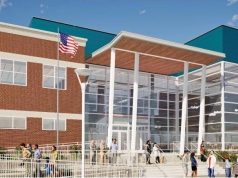Gayle Pohl, APR, an Associate Professor at the University of Northern Iowa, brings over three decades of public relations expertise, both as an educator and practitioner, into the dynamic and ever-evolving field of PR. Teaching at both graduate and undergraduate levels, Gayle Pohl of Iowa has been a dedicated member of the Public Relations Society of America and a faculty advisor for the Public Relations Student Society of America and the student-run agency for 26 years. With her extensive experience specializing in nonprofit, special events, healthcare, entertainment, and educational public relations, Gayle Pohl exemplifies the critical role of mentorship, networking, and continuous professional development. These elements are pivotal in shaping the trajectory of PR careers, enhancing professionals’ reputations, and influencing the effectiveness of PR campaigns. This article taps into Gayle Pohl’s insights and broader industry perspectives to underscore the significant impact of mentorship and networking in the PR industry, offering practical advice for leveraging these tools for career advancement.
The Power of Mentorship in Public Relations
Mentorship in PR serves as a compass for navigating the complex landscape of media relations, crisis communication, brand management, and beyond. A mentor, typically an experienced PR professional, guides mentees through the intricacies of the industry, offering wisdom gleaned from years of experience. Gayle Pohl of Iowa emphasizes that this relationship is invaluable for several reasons:
- Accelerated Learning Curve
Mentors provide insights into the nuances of PR that are seldom found in textbooks or classrooms. They share real-world scenarios, challenges they’ve faced, and strategies they’ve employed, thereby accelerating the learning curve for mentees. This hands-on knowledge is crucial for developing the tactical and strategic thinking necessary for success in PR. - Enhanced Networking Opportunities
Mentors often introduce mentees to a broader network of PR professionals, potential clients, and media contacts. These introductions can open doors to new opportunities, collaborations, and insights into different aspects of the industry. The importance of networking in PR cannot be understated, as relationships are the bedrock upon which successful careers and campaigns are built. - Career Guidance and Support
Mentors can act as sounding boards for ideas, offer advice on career moves, and provide support during challenging times. Their guidance can be instrumental in helping mentees navigate the complexities of the PR field, make informed decisions about their career paths, and achieve their professional goals.
The Significance of Networking in Public Relations
Networking is a critical component of success in the PR industry. It involves building and maintaining relationships with journalists, influencers, colleagues, competitors, and clients. Gayle Pohl explains that effective networking can lead to:
- Greater Visibility and Opportunities
Regular interaction with industry peers and media professionals increases visibility and keeps you top-of-mind for opportunities such as collaborations, job openings, speaking engagements, and more. It’s often through these connections that PR professionals find their next big break or client. - Knowledge Exchange and Innovation
Networking events, conferences, and professional associations provide platforms for exchanging ideas, discussing trends, and exploring innovative strategies. This continuous learning and sharing of knowledge foster professional growth and can lead to more effective and creative PR campaigns. - Reputation Building
In PR, reputation is everything. Networking helps build a professional brand and establish a reputation as a knowledgeable, reliable, and effective PR practitioner. Positive relationships with media and industry peers can also lead to endorsements and referrals, further enhancing one’s professional standing.
Leveraging Mentorship and Networking for Professional Development
Gayle Pohl of Iowa emphasizes that to maximize the benefits of mentorship and networking in PR, professionals should:
- Seek out mentors actively: Don’t wait for a mentorship opportunity to come to you. Identify professionals whose careers you admire and reach out to them for advice, guidance, or even a formal mentorship arrangement.
- Engage in continuous networking: Attend industry conferences, join PR associations, and participate in online forums and social media groups dedicated to PR. The goal is to stay connected, visible, and involved in the PR community.
- Offer value in return: Mentorship and networking are two-way streets. Be willing to share your knowledge, support others in their endeavors, and contribute to the PR community. This reciprocity strengthens relationships and enhances your reputation as a valuable member of the PR profession.
- Embrace lifelong learning: The PR field is constantly changing. Stay informed about the latest trends, tools, and techniques by attending workshops, webinars, and courses. Continuous professional development is key to staying relevant and effective in your role.
In conclusion, mentorship and networking play indispensable roles in the public relations field, offering pathways to accelerated learning, enhanced career opportunities, and professional growth. Gayle Pohl emphasizes that by actively seeking mentorship, engaging in continuous networking, and committing to lifelong learning, PR professionals can unlock their full potential and achieve sustained success in this competitive and rewarding industry.








